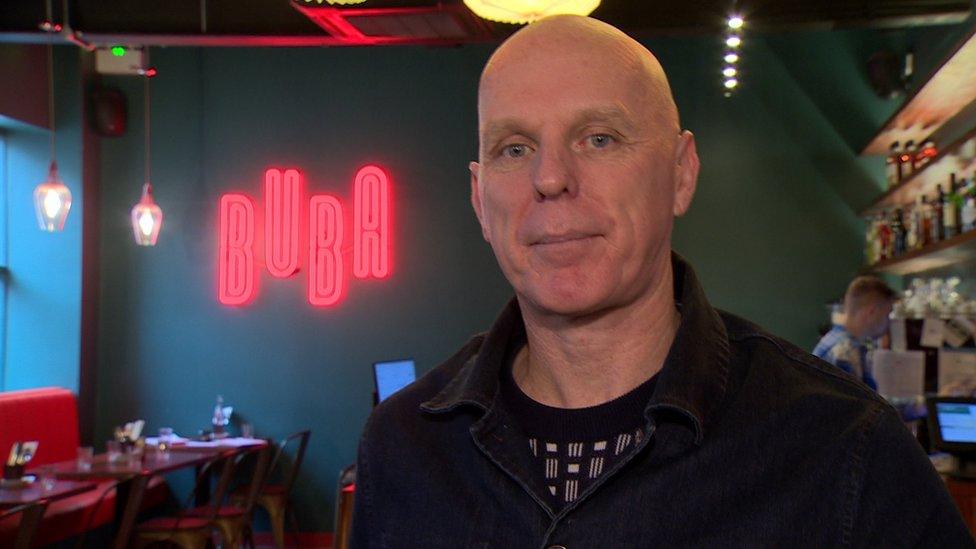Cost-of-living crisis: Hospitality firms adapt to survive as costs rise
- Published

Some businesses in Northern Ireland's hospitality sector are having to adapt to survive because of the rising cost of goods and energy.
It comes as inflation fell slightly for the second month in a row - from 10.7% to 10.5% - but remains close to a 40-year high
The rate, which shows how prices are rising or falling, has dropped slightly from its peak of 11.1% in October.
It is still more than five times the Bank of England target rate of 2%.
One Belfast-based restaurant has decided to rebrand from Mediterranean cuisine to a burger restaurant that will also offer takeaway service.
The change came into effect last week.
Tony O'Neill, owner of Buba in Belfast's Cathedral Quarter, said the lunch trade had "disappeared" because of the pandemic, with many city centre workers operating from home.
"Not everybody is back, so we couldn't get enough turnover. With the rising costs and the limited amount of turnover, we had to do something to change it."
"It gives us more options and hopefully we can sustain the business and keep all the staff happy in their jobs," he added.
"Everything has gone up - labour and materials" - Tony O'Neill
Rising energy bills and food costs are a big challenge for the hospitality sector, as they can only pass so much on to customers in the form of higher prices.
"We would have always outsourced the printing of our menu and maybe changed it every few months," Mr O'Neill said.
"Now we have to print in-house because the fluctuation of prices changes so rapidly that sometimes we have to take something off the menu and change it quite quickly.
"We have to work a lot smarter now to keep the businesses profitable."
Mr O'Neill added that as many customers struggle with rising costs "a luxury will be the first thing they are going to cut".
"Sometimes you have to take a lot of it on the chin yourself because if you increase your prices too much to where they should be, people won't come out."
Related topics
- Published18 January 2023

- Published17 January 2023

